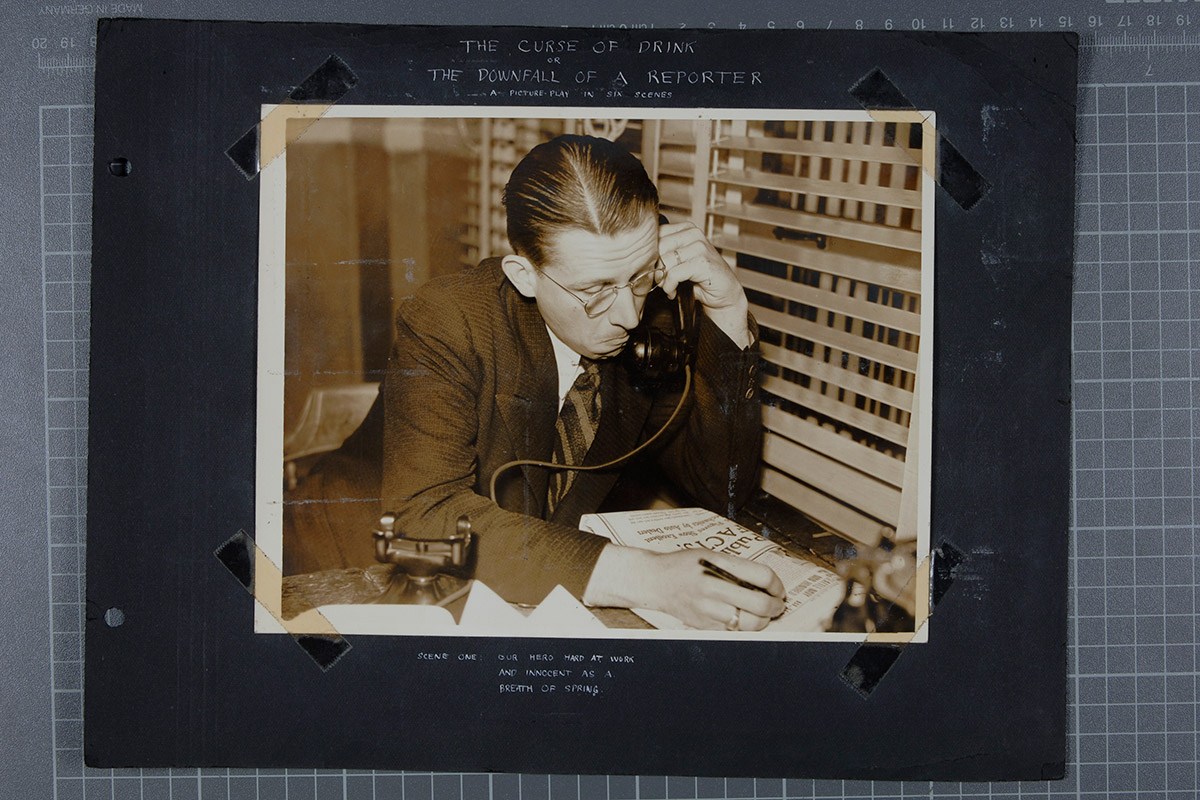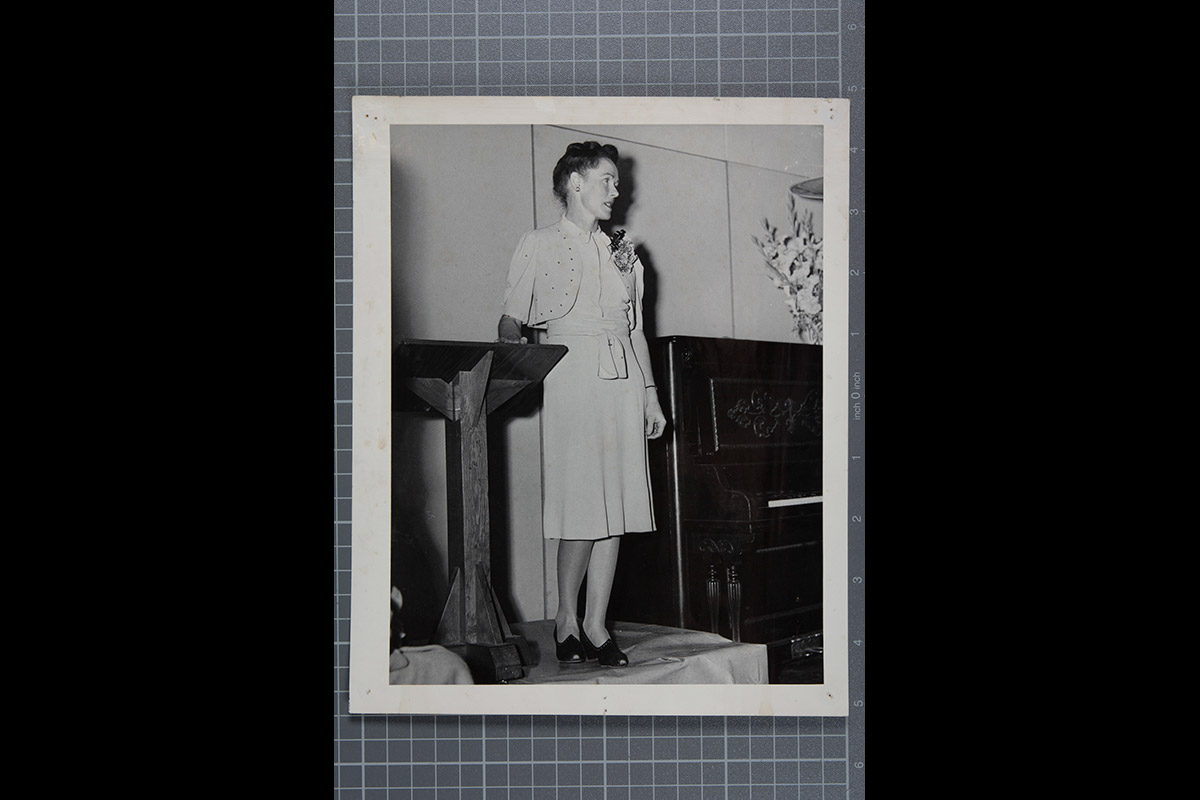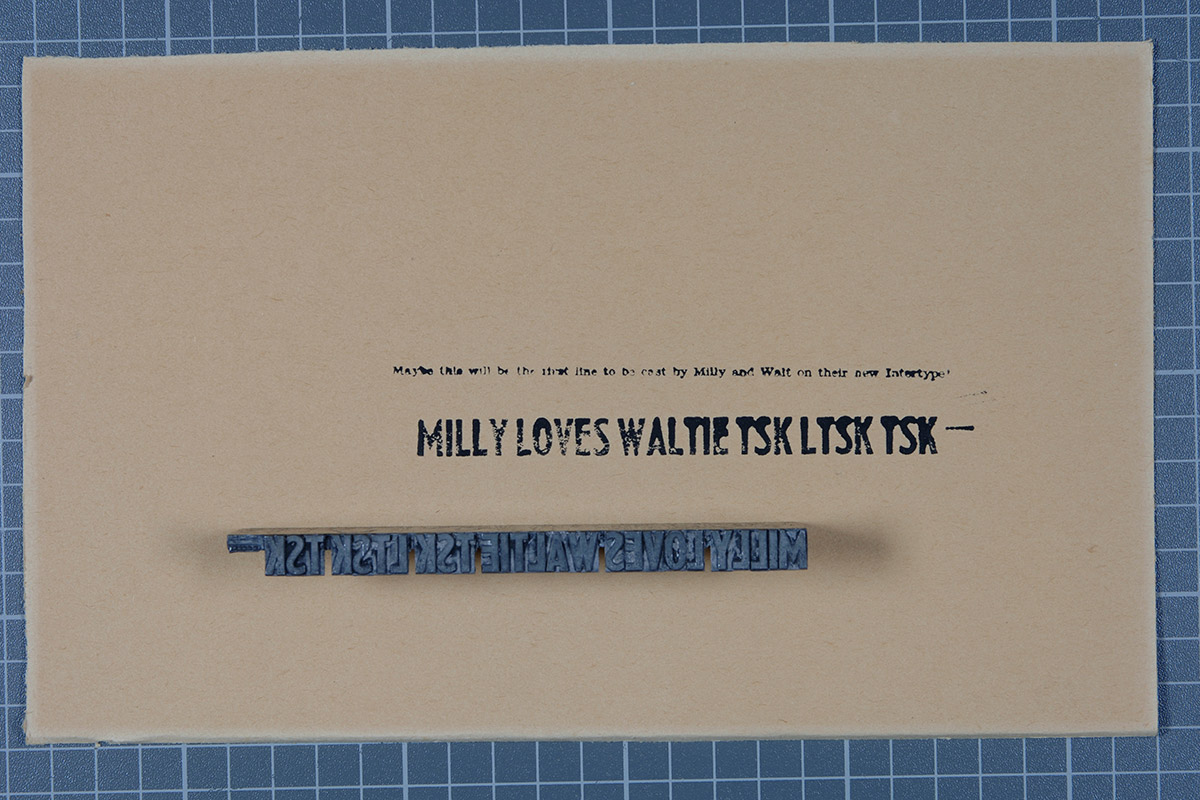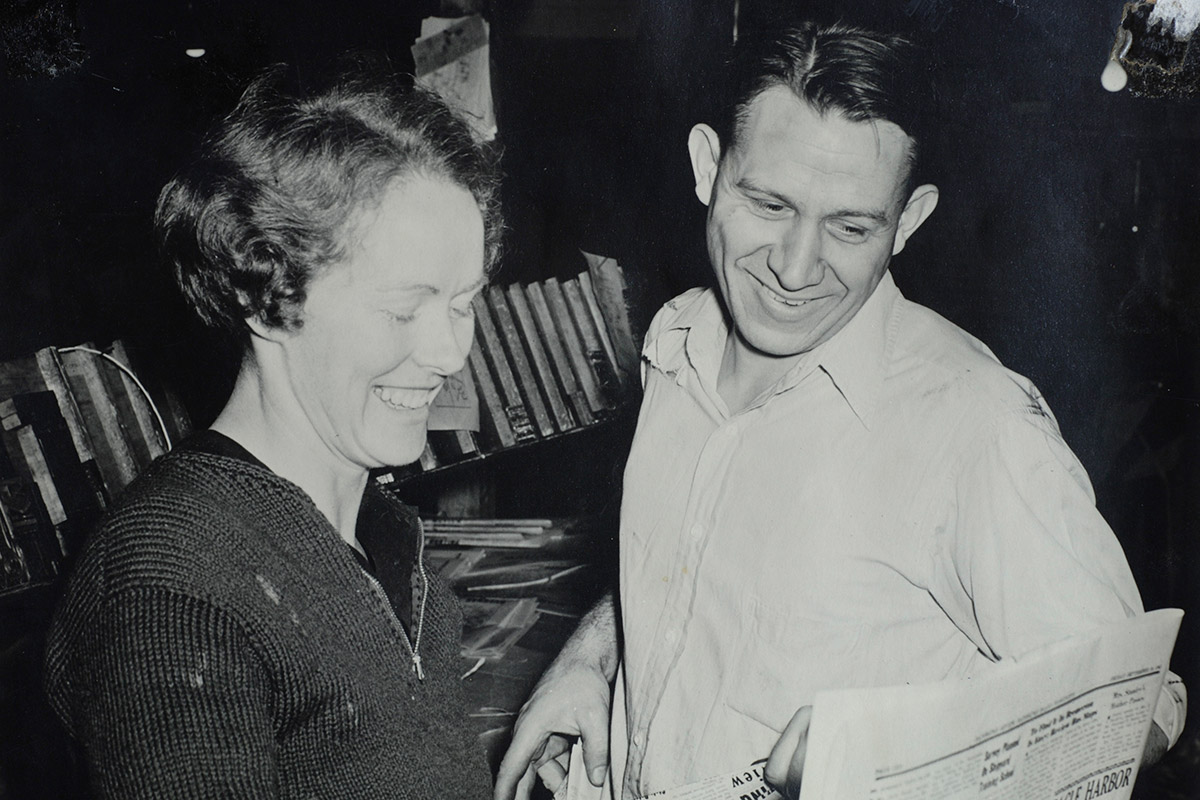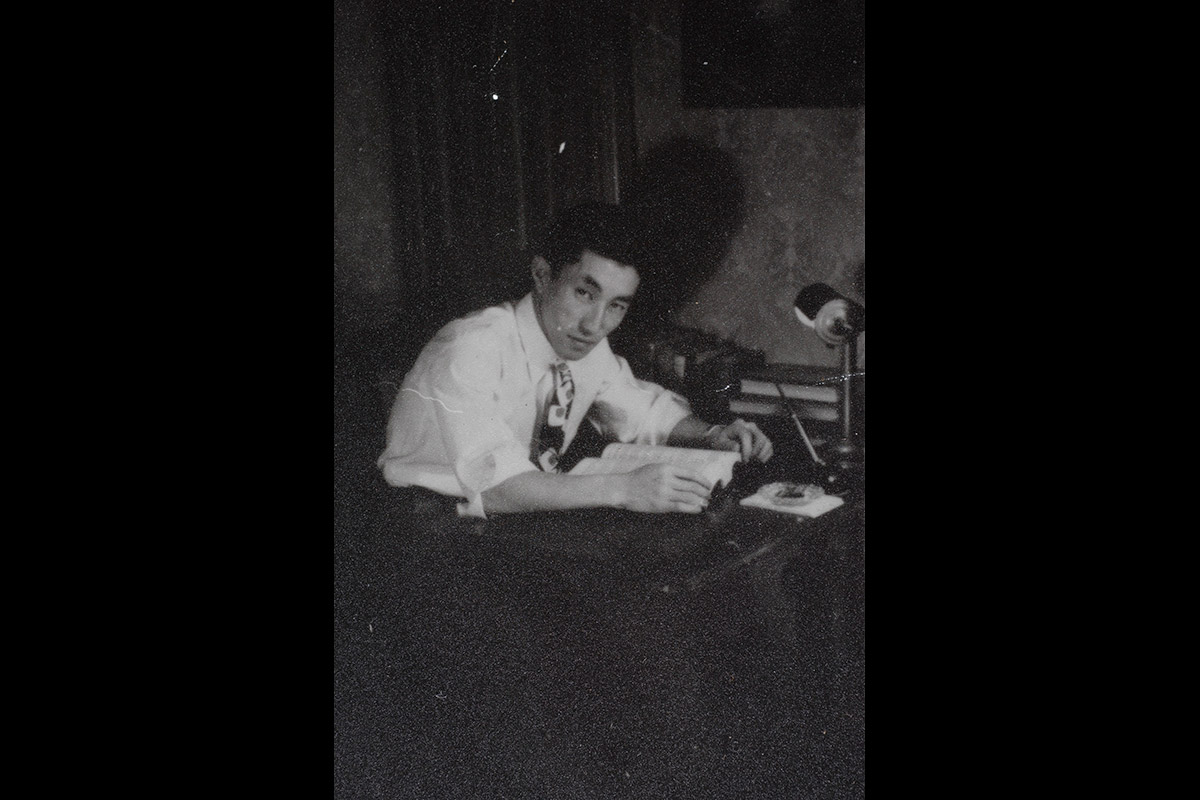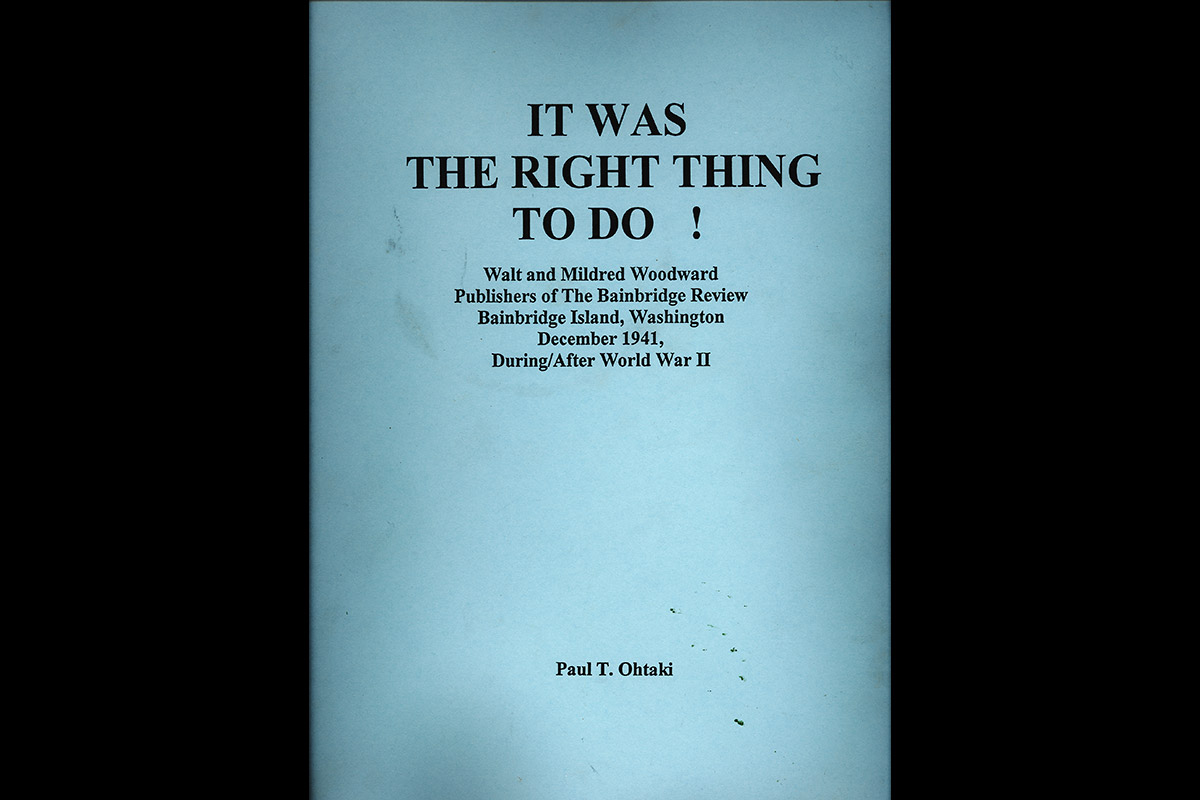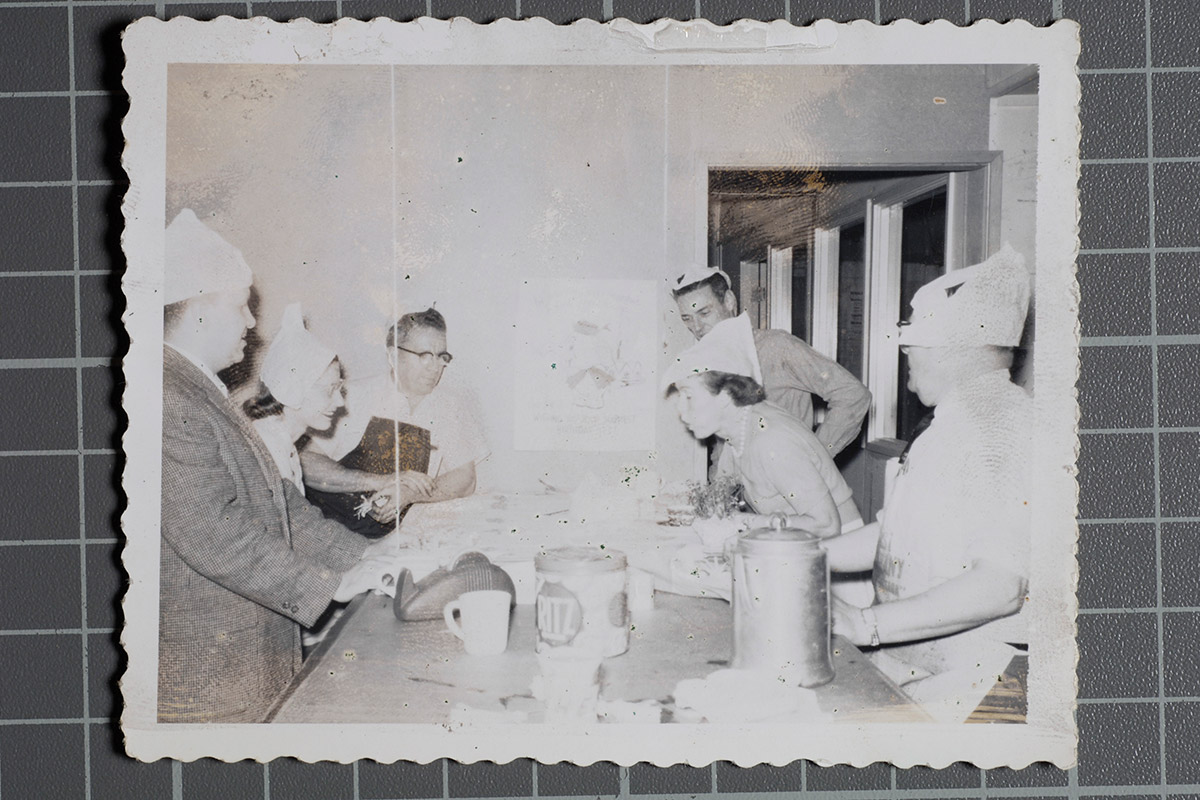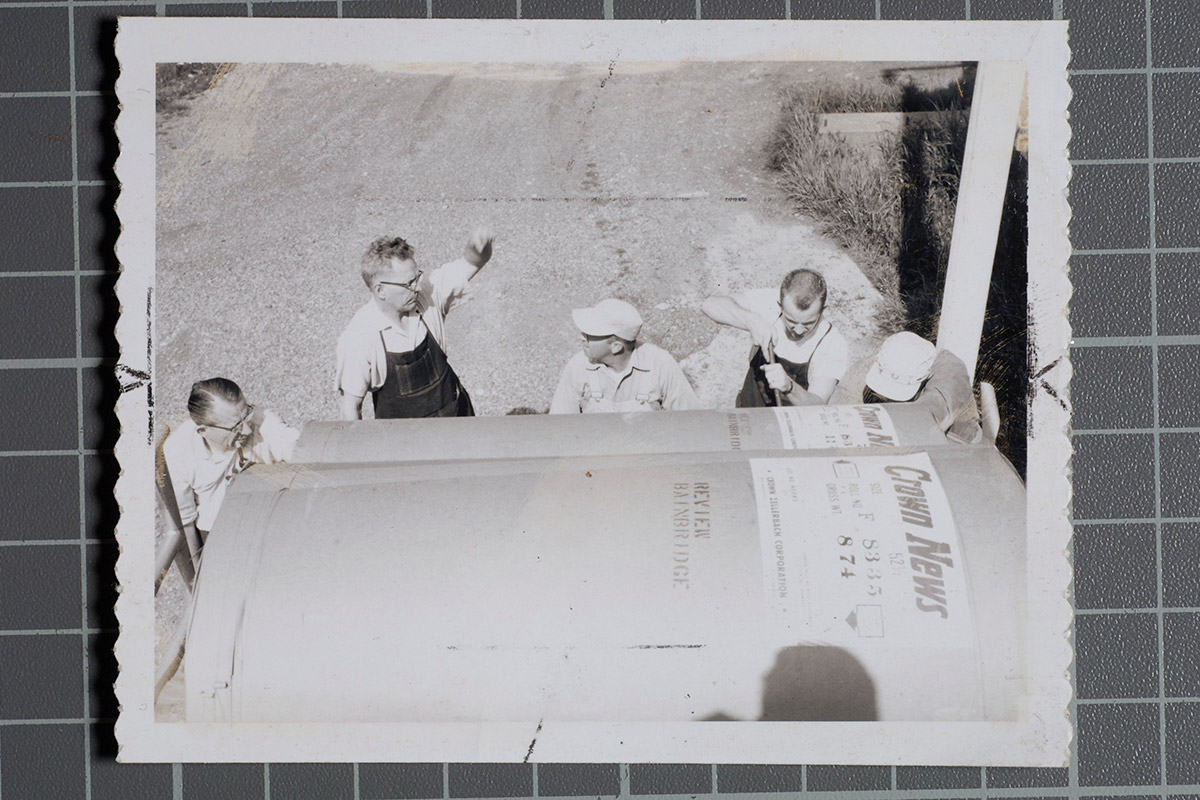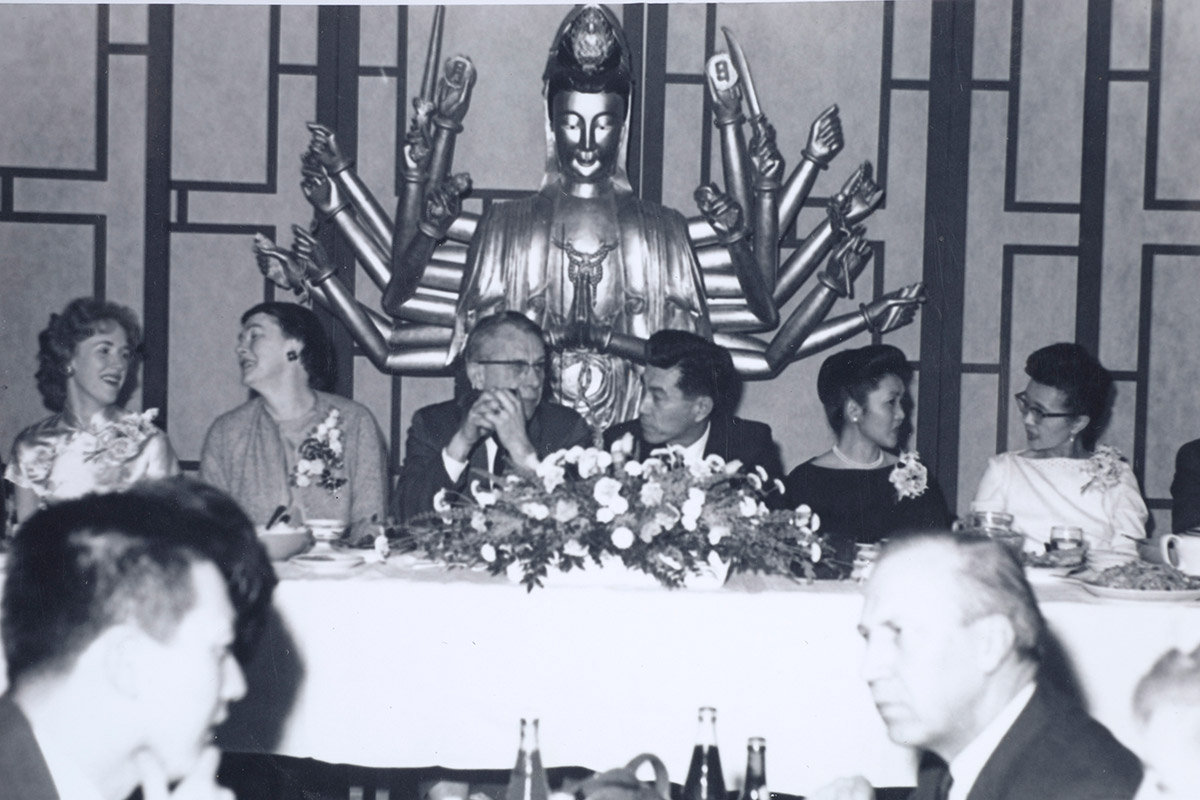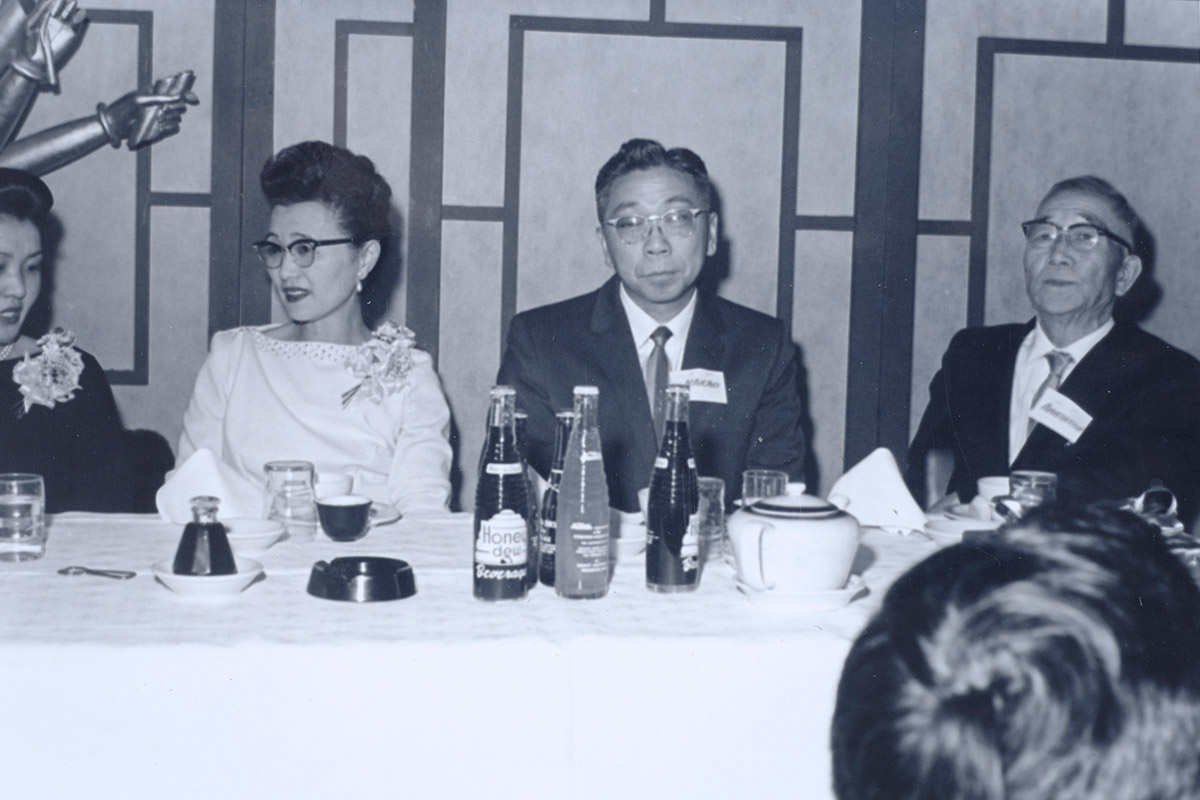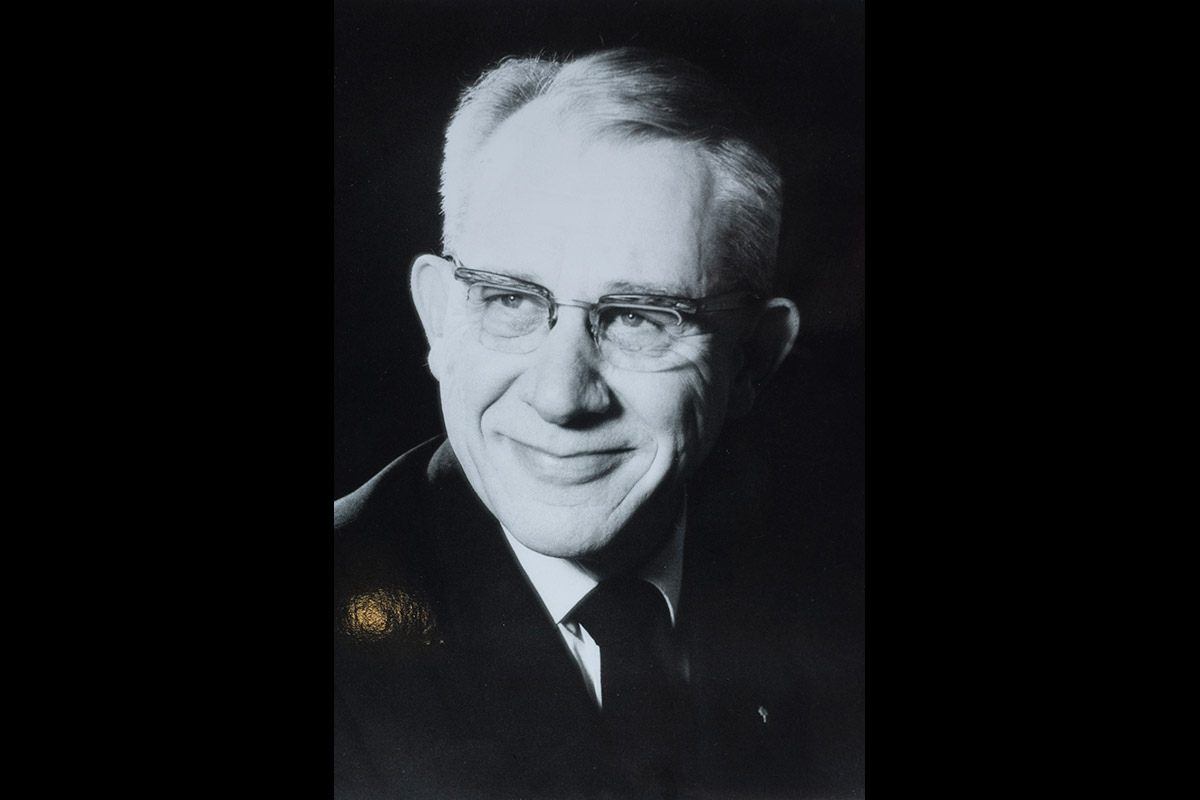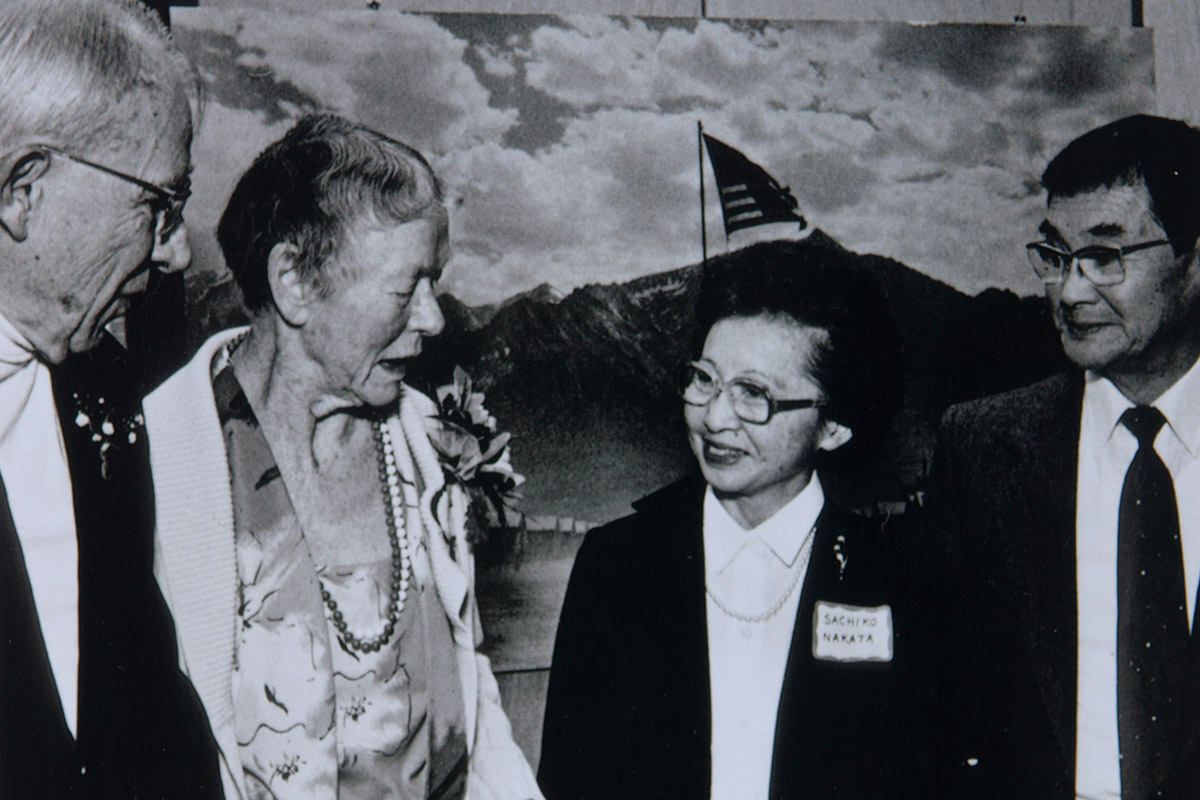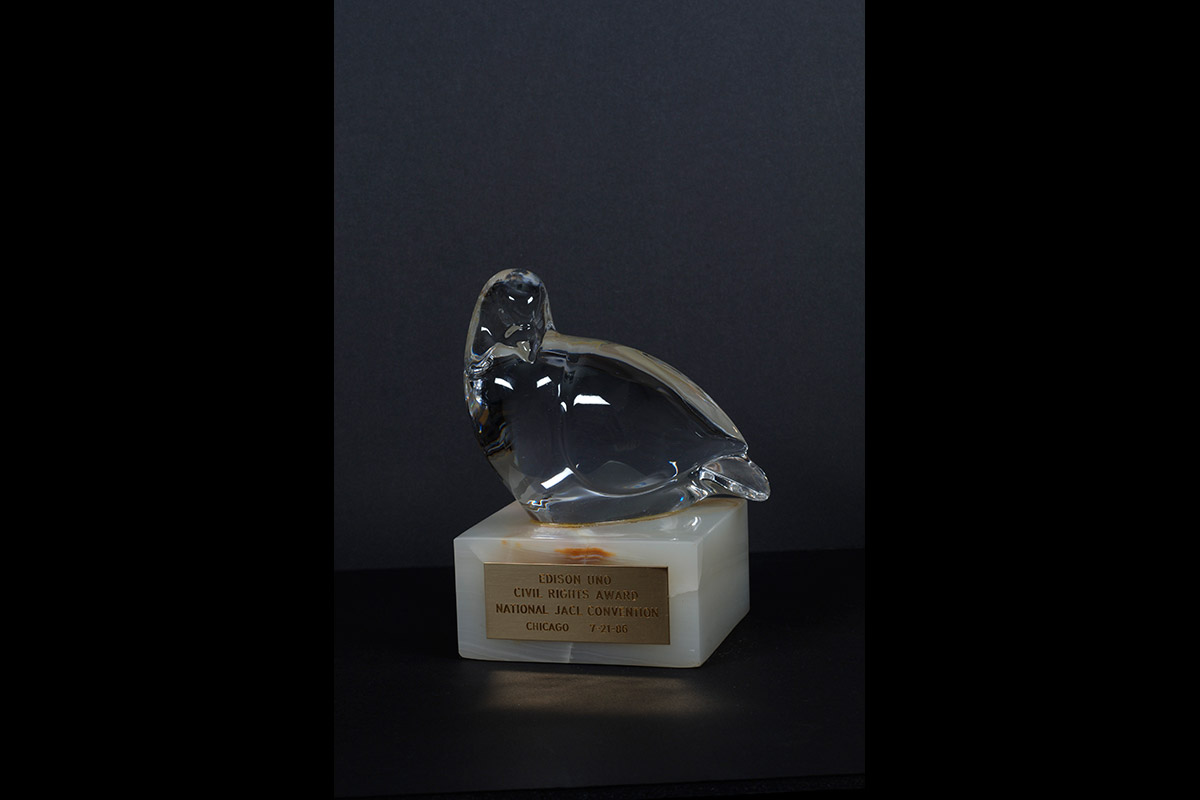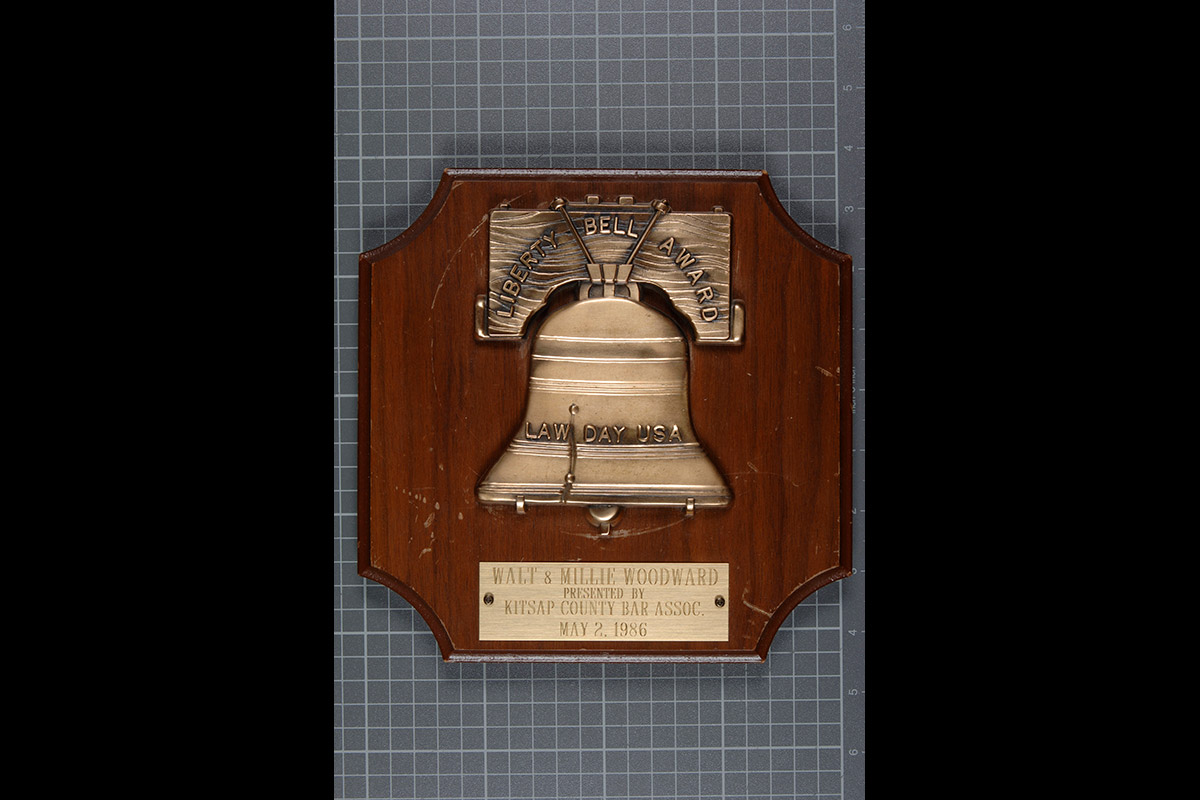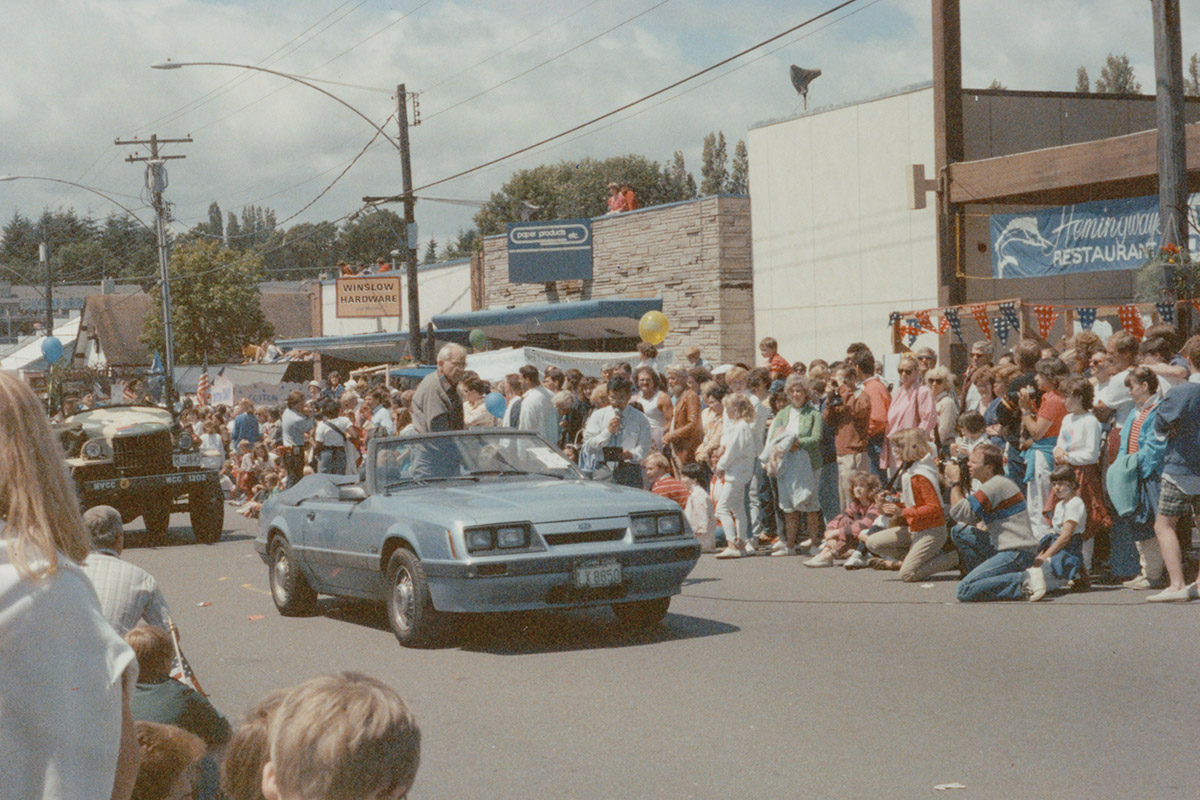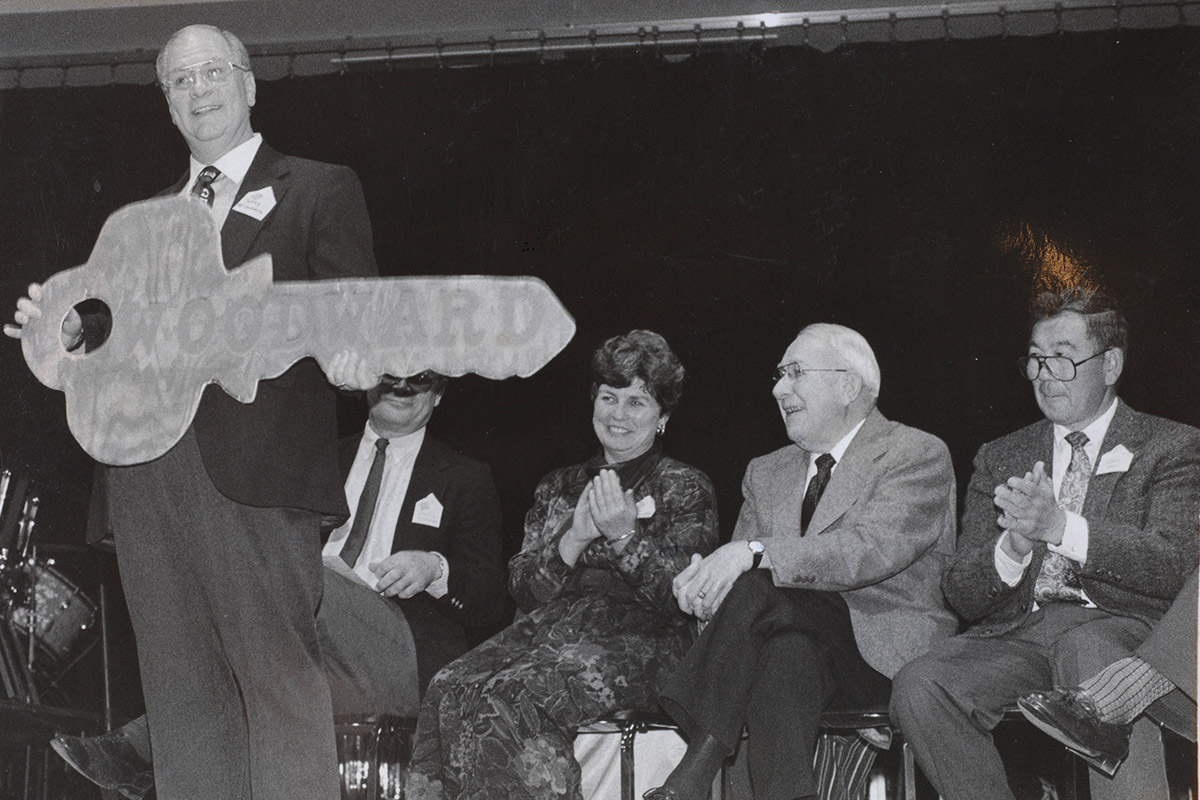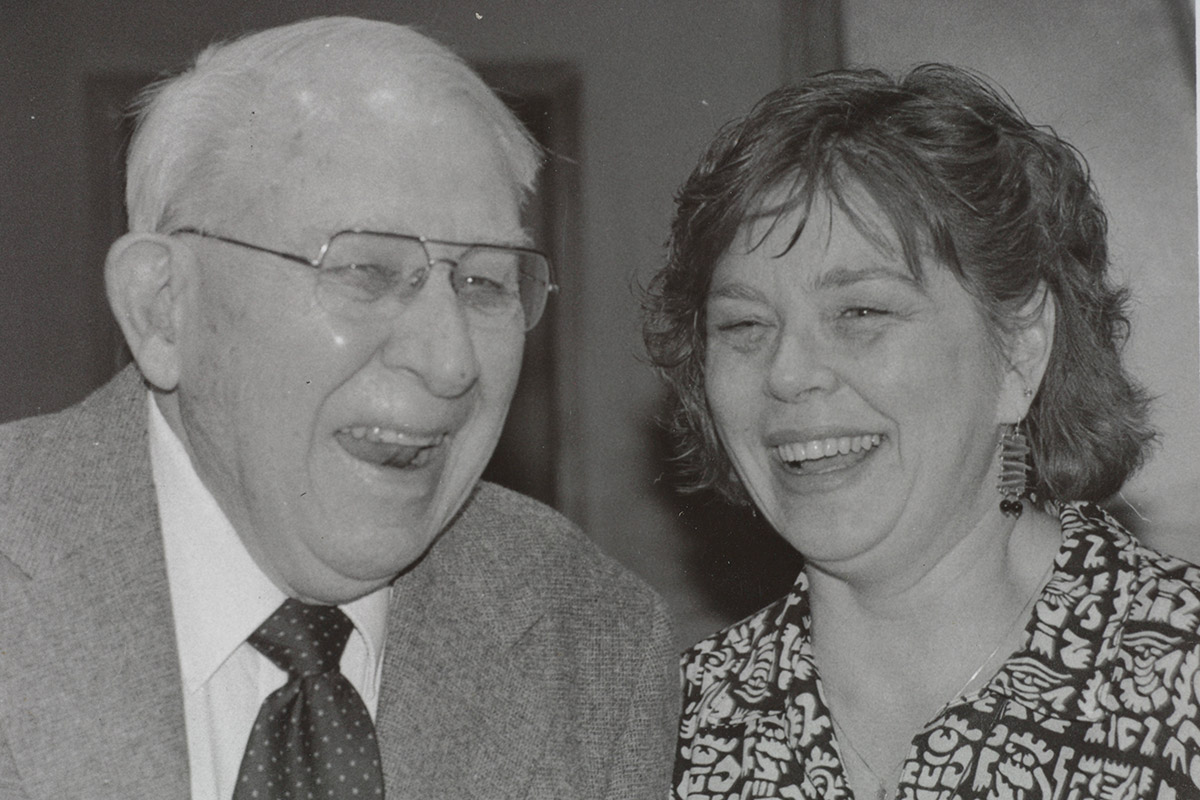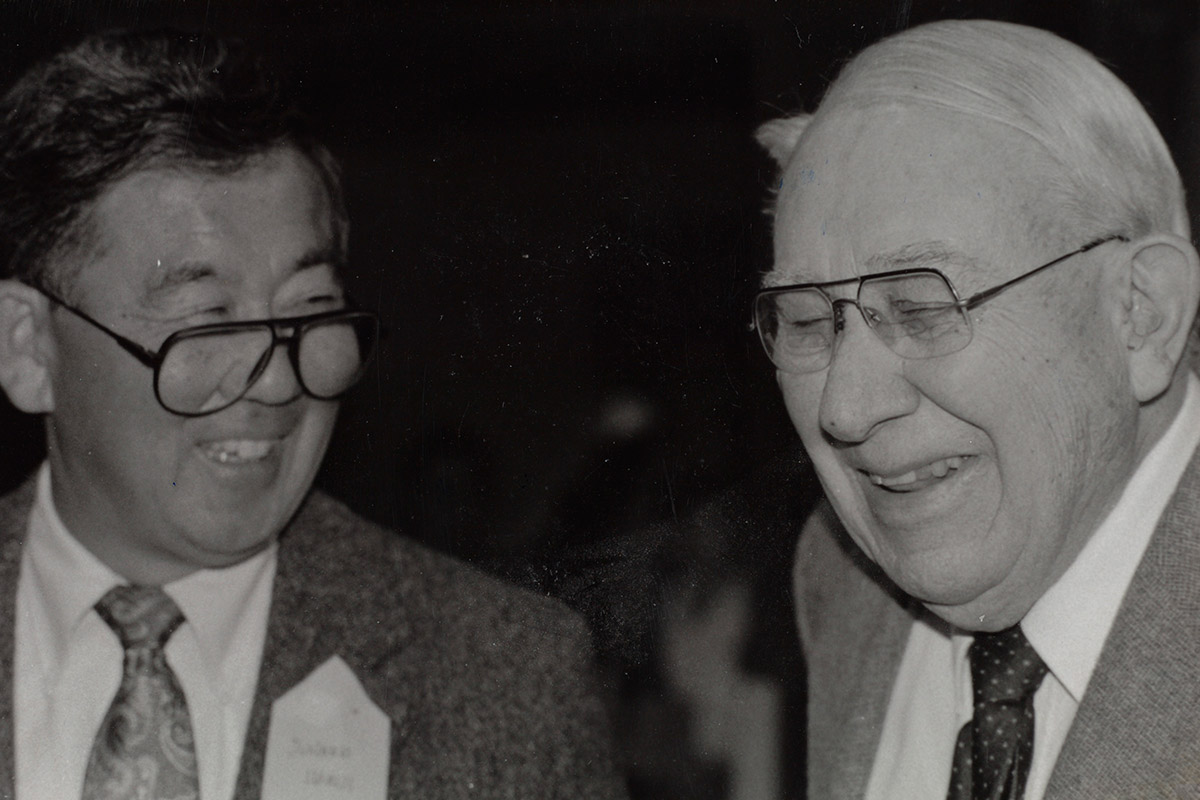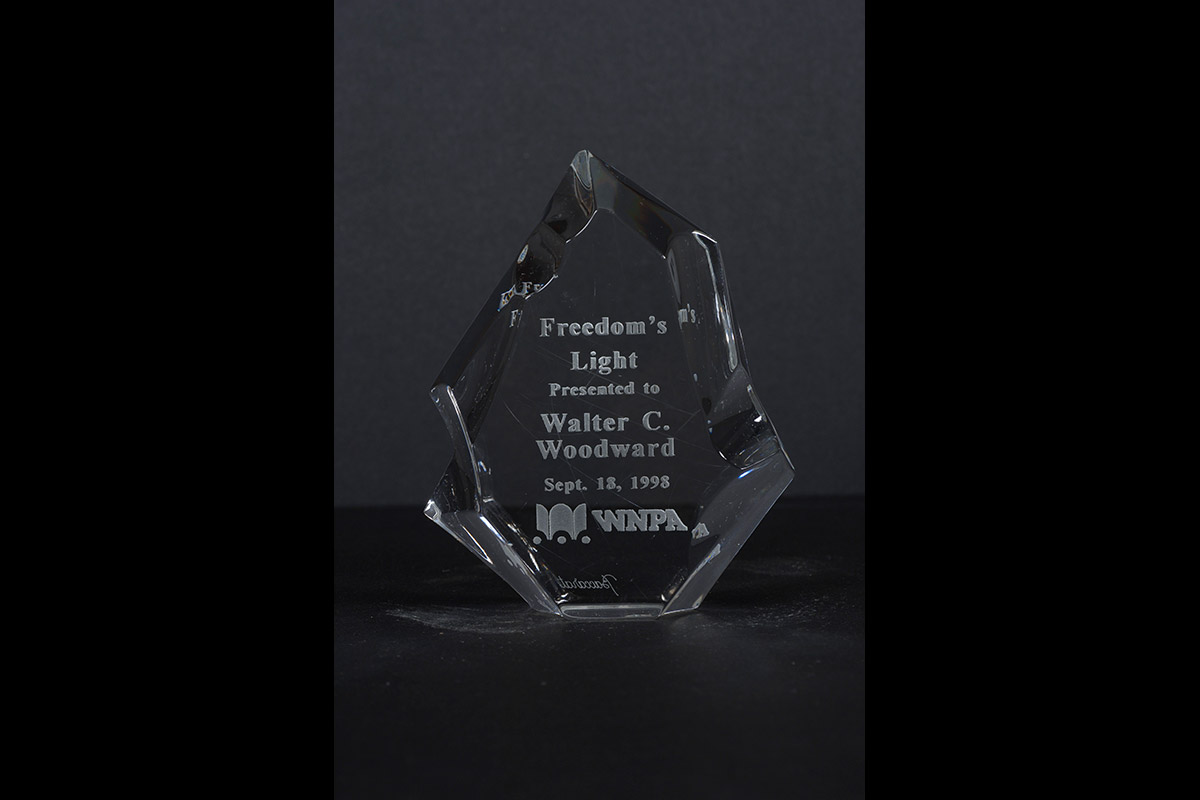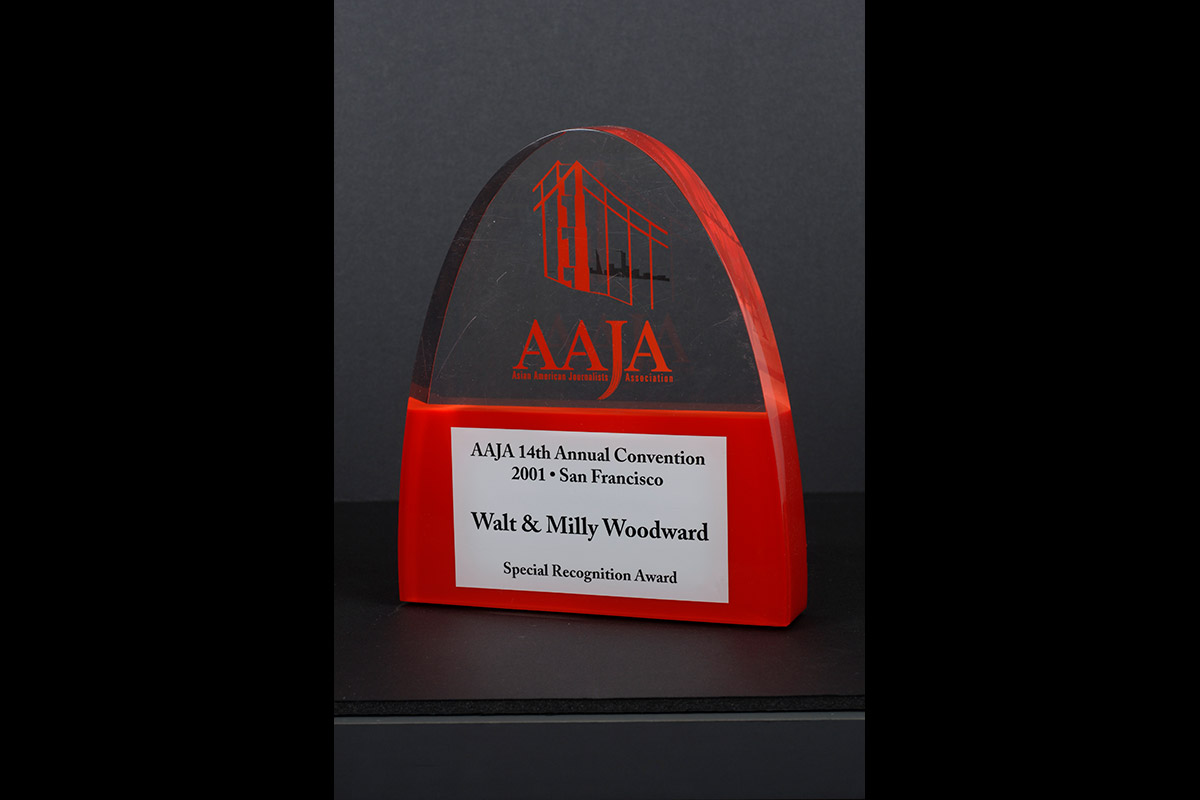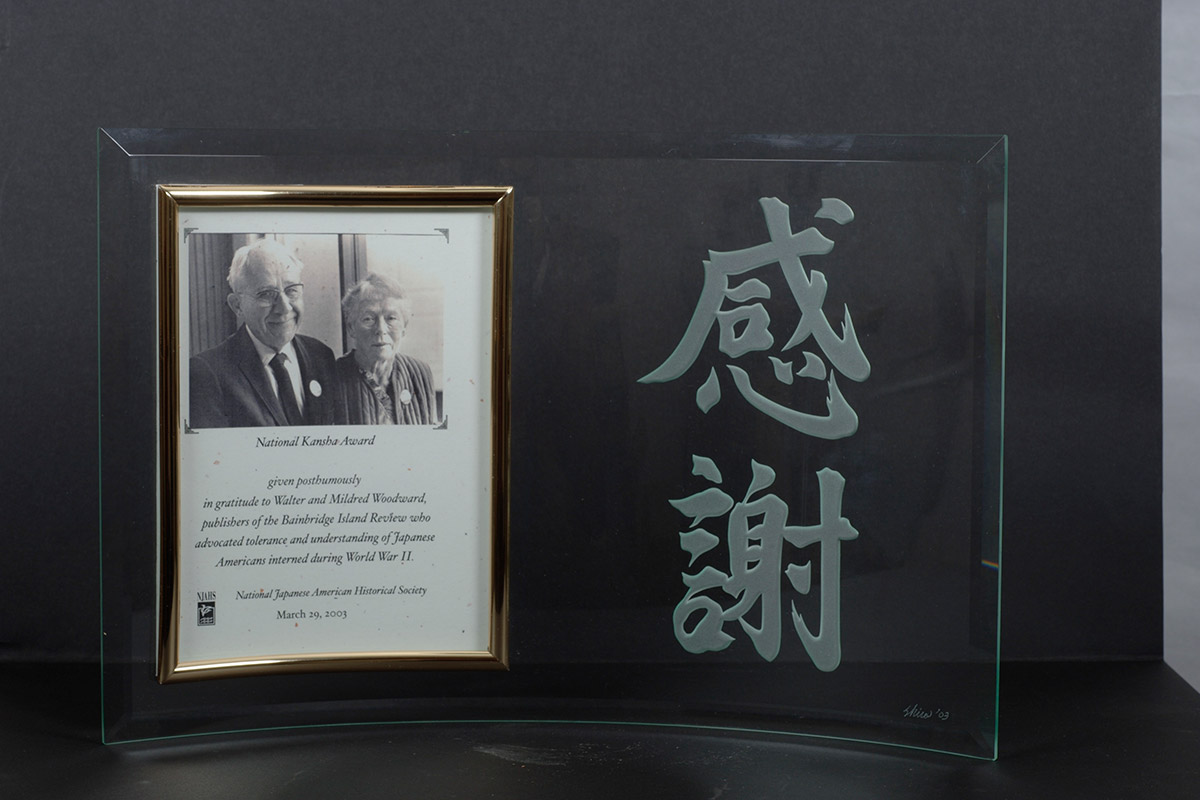Two months before Pearl Harbor, Walt and Milly Woodward pledged in a front page editorial to "always strive to speak the truth, unafraid, whether it be on a national issue or something purely local." In 1940, the young couple–barely thirty–had purchased the weekly Bainbridge Review, a chatty conveyor of neighborhood gossip. A year later, when the U.S. entered WWII, the couple had transformed the Review into a respected community paper full of current, factual news, and an editorial page that drew national attention.
The day after Pearl Harbor, Milly and Walt Woodward warned, "There is the danger of a blind, wild hysterical hatred of all persons who can trace ancestry to Japan. That some of those persons happen to be American citizens...easily could be swept aside by mob hysteria." Urging Islanders to remain calm, the Woodwards continued, " The Review says this: These Japanese Americans of ours haven't bombed anybody...They have given every indication of loyalty to this nation. They have sent...their own sons–six of them–into the United States Army."
The Woodwards continued, throughout the war, to speak against the constitutional violations inherent in E.O. 9066. The tiny Bainbridge Review has been singled out nationally as the lone newspaper to take such a stand. Also, in an attempt to report accurately on Islanders' lives, Milly and Walt Woodward hired high school students to report from Manzanar and, later, Minidoka on the daily events in the exiles' lives. Thus Islanders could keep track of each other. Perhaps as a result of that, 150 of the 272 exiled Islanders returned to Bainbridge, a greater percentage than most communities.
Slideshow
This is a collection of photos, artifacts, and awards from the Walt and Milly Woodward collection. They span from the early years of the Bainbridge Review to the late 1980s.
The Woodwards did three things with the Review that has earned them several journalistic awards as well as the gratitude of the Japanese American community. The first is that they consistently used their editorial section to warn against letting hatred, fear, and prejudice cloud their readers' views of their Japanese American neighbors that they had known for years. They spoke out against the wrongs done to the West Coast Nikkei in a time when most stayed quiet. Second, they started an Open Forum section of the paper in which all letters to the editor were published as long as they were signed and not libelous. This provided a public platform for Island residents to share their feelings and to communicate with one another.
Several inflammatory letters in opposition to the Japanese return to the Island were published. Soon both Walt and other Islanders wrote in opposition to this stand. This helped calm the atmosphere and allowed for a quiet and uneventful return for the Japanese Americans to Bainbridge Island. The third is the foresight the Woodwards had in hiring camp correspondents to write regular columns for the Review from Manzanar and later Minidoka throughout the war. Paul Ohtaki, followed by Sada Omoto, Tony Koura, and Sa Koura wrote about the daily lives of the Islanders in camp, covering news such as births, deaths, weddings, sicknesses, baseball statistics, and even pranks that were played by the youngsters in camp. These columns helped the Island Nikkei to return not as strangers, but as the same old friends they were when they left.
 Prior to purchasing The Review, Walt was a sports reporter for a newspaper in Juneau, Alaska for seven years, followed by six years as a court reporter for the Seattle Times.
Prior to purchasing The Review, Walt was a sports reporter for a newspaper in Juneau, Alaska for seven years, followed by six years as a court reporter for the Seattle Times. Before turning to the newspaper business, Milly was a school teacher in Juneau, Alaska where she met Walt. She later taught English and sociology at Bainbridge High School in the 1930s and again in the 70s after they sold the paper.
Before turning to the newspaper business, Milly was a school teacher in Juneau, Alaska where she met Walt. She later taught English and sociology at Bainbridge High School in the 1930s and again in the 70s after they sold the paper. The Review purchased a "new" used linotype machine in the 1940s. Milly cast this first line in celebration of their purchase. Humor and zest for living often got Walt and Milly through their long days at the Review. They were clearly in it as a team.
The Review purchased a "new" used linotype machine in the 1940s. Milly cast this first line in celebration of their purchase. Humor and zest for living often got Walt and Milly through their long days at the Review. They were clearly in it as a team. In the back is their linotype machine. At this time the Review office was in the same building as their home in Pleasant Beach. With no publishing or editing experience Walt and Milly ran the paper all by themselves. They were newspaper owners, publishers, editors, reporters, salesmen, business managers, typesetters, printers, pressmen, mailers, and janitors.
In the back is their linotype machine. At this time the Review office was in the same building as their home in Pleasant Beach. With no publishing or editing experience Walt and Milly ran the paper all by themselves. They were newspaper owners, publishers, editors, reporters, salesmen, business managers, typesetters, printers, pressmen, mailers, and janitors. Paul sent this photo of himself out as a Christmas card. Paul, who worked as a janitor for the Bainbridge Review prior to the war, was the first camp correspondent who wrote articles for the Review on news from camp.
Paul sent this photo of himself out as a Christmas card. Paul, who worked as a janitor for the Bainbridge Review prior to the war, was the first camp correspondent who wrote articles for the Review on news from camp. This is a self-published collection of Paul's articles written for the Bainbridge Review while he was in camp, as well as other Review articles and letters.
This is a self-published collection of Paul's articles written for the Bainbridge Review while he was in camp, as well as other Review articles and letters. Milly and Walt Woodward Receiving an Award for Their Newspaper Writing
Milly and Walt Woodward Receiving an Award for Their Newspaper Writing The playfulness of the Woodwards and their staff is evident in this photo. L to R: Fred Tyszko, Bette Nute, Art McConaha, Wayne Jacobi, Milly Woodward, Al Chamberlain. Circa 1950
The playfulness of the Woodwards and their staff is evident in this photo. L to R: Fred Tyszko, Bette Nute, Art McConaha, Wayne Jacobi, Milly Woodward, Al Chamberlain. Circa 1950 In the late 1950s the Review moved to an office in Winslow. Left to right: Walt Woodward, Art McConnahay, unknown, Ray or Gene Shawley, unknown.
In the late 1950s the Review moved to an office in Winslow. Left to right: Walt Woodward, Art McConnahay, unknown, Ray or Gene Shawley, unknown. On January 13, 1963 the Bainbridge Island Japanese community said thank you to Milly and Walt at a dinner in their honor. Yoshiaki Amatatsu spoke in Japanese. The Woodwards, he said, "at possible personal sacrifice, stood up in our behalf, which contributed in enabling our return."
On January 13, 1963 the Bainbridge Island Japanese community said thank you to Milly and Walt at a dinner in their honor. Yoshiaki Amatatsu spoke in Japanese. The Woodwards, he said, "at possible personal sacrifice, stood up in our behalf, which contributed in enabling our return." Seattle. Jan 13, 1963. L to R: Kay Nakao, Sam Nakao, Yoshiaki Amatatsu. Sam and Yoshiaki made speeches that night.
Seattle. Jan 13, 1963. L to R: Kay Nakao, Sam Nakao, Yoshiaki Amatatsu. Sam and Yoshiaki made speeches that night. Portrait of Walt Woodward. Credit: Bainbridge Island Historical Society, Mary Woodward. Digital reproduction by Fenwick Publishing.
Portrait of Walt Woodward. Credit: Bainbridge Island Historical Society, Mary Woodward. Digital reproduction by Fenwick Publishing. Portrait of Milly Woodward. Credit: Bainbridge Island Historical Society, Mary Woodward. Digital reproduction by Fenwick Publishing.
Portrait of Milly Woodward. Credit: Bainbridge Island Historical Society, Mary Woodward. Digital reproduction by Fenwick Publishing. Sachiko was a camp correspondent to the Review during the war. This photo was taken at the Edison Uno Civil Rights Award at the National JACL Convention. Chicago. July 21, 1986.
Sachiko was a camp correspondent to the Review during the war. This photo was taken at the Edison Uno Civil Rights Award at the National JACL Convention. Chicago. July 21, 1986. This award is named for a San Francisco State University professor known for his passion for justice. It was awarded to Walt at the National JACL convention in Chicago, Illinois on July 21, 1986.
This award is named for a San Francisco State University professor known for his passion for justice. It was awarded to Walt at the National JACL convention in Chicago, Illinois on July 21, 1986. The Kitsap County Bar Association honored the Woodwards on Law Day, 1986, with the Liberty Bell Award for "[holding] before this community the reality of the law... [when] the U.S. Supreme Court forgot that we are a nation ruled by law." (Photographed by Fenwick Publishing)
The Kitsap County Bar Association honored the Woodwards on Law Day, 1986, with the Liberty Bell Award for "[holding] before this community the reality of the law... [when] the U.S. Supreme Court forgot that we are a nation ruled by law." (Photographed by Fenwick Publishing) The Woodwards were the grand marshals in Bainbridge Island's Grand Old Fourth parade. Here the parade is interrupted as Art Koura presents them with an American flag and a certificate of appreciation "for your outstanding courage" from the veterans of the 100th Infantry Battalion, the 442nd Regimental Combat Team, and the Military Intelligence Service.
The Woodwards were the grand marshals in Bainbridge Island's Grand Old Fourth parade. Here the parade is interrupted as Art Koura presents them with an American flag and a certificate of appreciation "for your outstanding courage" from the veterans of the 100th Infantry Battalion, the 442nd Regimental Combat Team, and the Military Intelligence Service. Islanders honored the Woodwards as "principal keepers of [the] compass course on the Island in the twentieth century" by naming their new middle school after them. L to R: Principal holding key, Vicki Clayton, Walt Woodward, Junkoh Harui. November 5, 1994.
Islanders honored the Woodwards as "principal keepers of [the] compass course on the Island in the twentieth century" by naming their new middle school after them. L to R: Principal holding key, Vicki Clayton, Walt Woodward, Junkoh Harui. November 5, 1994. Woodward Middle School Dedication ceremony. November 5, 1994. Years later Mary would chronicle her parents' time as owners of the Review in her book In Defense of Our Neighbors.
Woodward Middle School Dedication ceremony. November 5, 1994. Years later Mary would chronicle her parents' time as owners of the Review in her book In Defense of Our Neighbors. When Woodward Middle School on Bainbridge Island was dedicated in honor of Walt and Milly, longtime friend and owner of Bainbridge Gardens, Junkoh Harui was on stage. He shared with the capacity crowd how the Woodward's affected his life.
When Woodward Middle School on Bainbridge Island was dedicated in honor of Walt and Milly, longtime friend and owner of Bainbridge Gardens, Junkoh Harui was on stage. He shared with the capacity crowd how the Woodward's affected his life. Milly and Walt were also honored by fellow journalists. This award was presented to Walt by the Washington Newspaper Publishers' Association on September 18, 1998. (Photographed by Fenwick Publishing)
Milly and Walt were also honored by fellow journalists. This award was presented to Walt by the Washington Newspaper Publishers' Association on September 18, 1998. (Photographed by Fenwick Publishing) This award was given to Walt and Milly by the Asian American Journalists Association for their journalistic integrity. San Francisco, CA. 2001. (Photographed by Fenwick Publishing)
This award was given to Walt and Milly by the Asian American Journalists Association for their journalistic integrity. San Francisco, CA. 2001. (Photographed by Fenwick Publishing) "Kansha" in Japanese means "in gratitude." At the first national Kansha Awards, the National Japanese American Historical Society posthumously honored Walt and Milly along with four other non-Nikkei individuals, and one group -- the American Friends Service Committee -- for their courage and kindness during the exclusion. March 29, 2003. (Photographed by Fenwick Publishing)
"Kansha" in Japanese means "in gratitude." At the first national Kansha Awards, the National Japanese American Historical Society posthumously honored Walt and Milly along with four other non-Nikkei individuals, and one group -- the American Friends Service Committee -- for their courage and kindness during the exclusion. March 29, 2003. (Photographed by Fenwick Publishing)
Oral History
- Walt and Milly's background - Mary Woodward (OH0078)
- Early years at the Review - Mary Woodward (OH0079)
- First controversial news story - Mary Woodward (OH0080)
- War Extra printed by the Review newspaper - Mary Woodward (OH0081)
- Woodwards' reactions to Executive Order 9066 - Mary Woodward (OH0083)
- Walt gives advice to some Nisei - Mary Woodward (OH0085)
- Camp correspondents and column in the Review - Mary Woodward (OH0086)
- Reactions in the BI community to Woodwards' stand against exclusion - Mary Woodward (OH0087)

